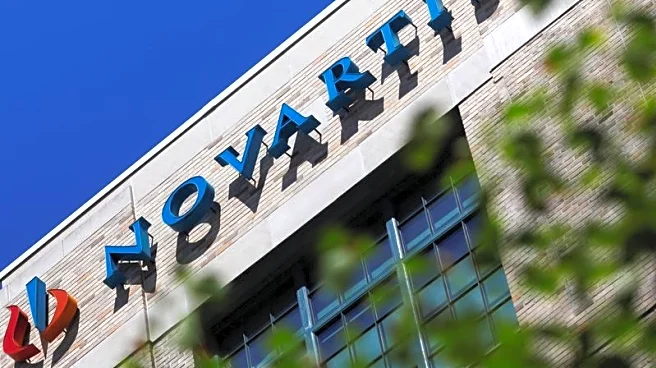What's Happening?
Sofia Coppola has adapted Alysia Abbott's memoir, 'Fairyland: A Memoir of My Father,' into a film set for release on October 10. The story, set in 1970s San Francisco, follows Abbott's childhood with her widowed, gay father, Steve Abbott, portrayed by Scoot McNairy. The narrative captures their life in a bohemian community before the AIDS epidemic. Coppola, who relates to the story through her own upbringing in San Francisco, collaborated with Andrew Durham, who makes his directorial debut with this film. The memoir and film highlight themes of acceptance, love, and the impact of the AIDS crisis, which claimed the lives of many, including Abbott's father.
Why It's Important?
The film 'Fairyland' sheds light on a significant cultural and historical period in San Francisco, emphasizing the vibrant and diverse community that existed before the AIDS epidemic. It serves as a reminder of the creative talents lost to the disease and the ongoing challenges faced by those living with HIV. By bringing this story to the screen, Coppola and Durham aim to preserve the memory of a generation affected by AIDS and highlight the resilience of the LGBTQ+ community. The film also underscores the importance of understanding historical struggles to appreciate the progress made in LGBTQ+ rights and health awareness.
What's Next?
With the film's release, there may be renewed interest in the history of the AIDS crisis and its impact on the creative community. The film could spark discussions on the importance of preserving LGBTQ+ history and the ongoing fight against HIV/AIDS. Additionally, it may inspire further adaptations of personal memoirs that explore significant cultural and historical themes.
Beyond the Headlines
The adaptation of 'Fairyland' into a film also highlights the role of storytelling in bridging generational gaps and fostering empathy. By sharing personal narratives, filmmakers like Coppola can connect audiences with past struggles and triumphs, encouraging a deeper understanding of diverse experiences. The film may also contribute to ongoing conversations about representation in media and the importance of diverse voices in storytelling.












